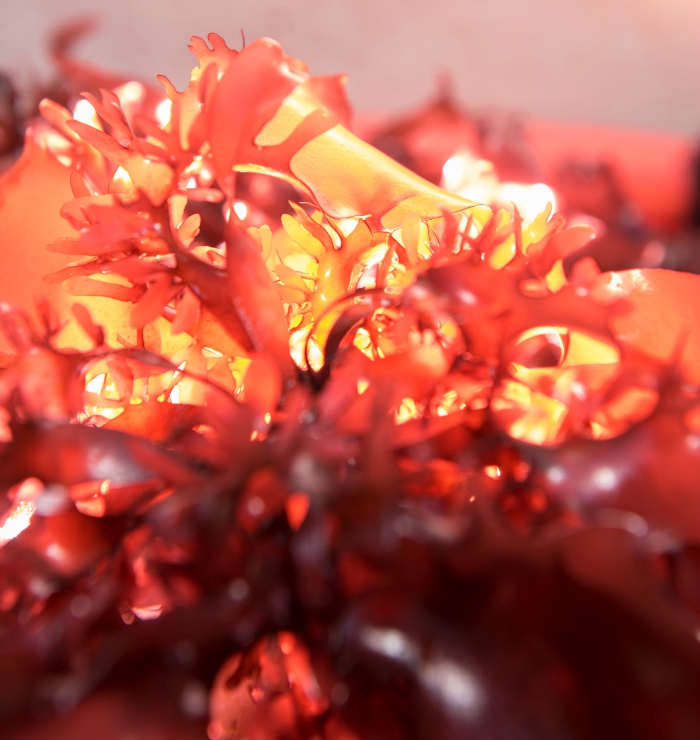In a week that's been jam-packed with incredible science news (New Horizons! New class of particles discovered at CERN!) this might just be the best thing we've heard so far: researchers in the US have discovered a strain of seaweed that apparently tastes just like bacon when it's fried, and has twice the nutritional value of kale.
Yes, you heard that right. The next superfood will be bacon-flavoured, and we can't wait to add it to our well-balanced diet.
The miracle seaweed is a fast-growing strain of red marine algae called dulse (Palmaria sp.), which grows wild along the Atlantic and Pacific coastlines and looks a lot like translucent red lettuce.
Scientists already knew that it was packed with antioxidants and vitamins, and contains up to 16 percent protein in dry weight, but usually it's harvested and sold dry as a cooking ingredient or nutritional supplement in Europe. But over the past 15 years, scientists at Oregon State University in the US have created a new strain that can be farmed, and they've found that it also has some unique taste benefits.
"There hasn't been a lot of interest in using it in a fresh form," lead researcher Chris Langdon says in a press release. "But this stuff is pretty amazing. When you fry it, which I have done, it tastes like bacon, not seaweed. And it's a pretty strong bacon flavour."
 Dulse. Image: Oregon State University
Dulse. Image: Oregon State University
Langdon bred the strain while trying to find a new superfood source to help abalone - aquatic mollusks that are incredibly popular in Asia - grow faster.
"Dulse is a superfood, with twice the nutritional value of kale," said business researcher Chuck Toombs, who's helping to commercialise the project. "And [Oregon State University] had developed this variety that can be farmed, with the potential for a new industry for Oregon."
And that was before they realised it tasted like the food of the gods. Obviously we're taking the researchers' word for now, and the flavour of the dulse still has to be independently verified, but if it does taste as good as it sounds, it won't only be a win for bacon lovers, but also a lucrative product for all those who currently can't enjoy the delicious meat, such as vegetarians, or those who don't eat pork for religious reasons.
Oregon State has now patented the new dulse strain, and Langdon and his team are working with chefs and the university's Food Innovation Centre in Portland to experiment with ways it could be used as an ingredient. They're already growing 9 to 14 kg (20 to 30 pounds) a week, and Langdon says they could quickly triple the production.
Although there's been no research done as yet into how well the crop could be commercialised, Toombs's MBA students are now working on a marketing plan for a line of specialty foods, with the vegan and vegetarian markets in mind. We're pretty confident that if the stuff really does taste as good as they claim, they'll have no problem selling it.
